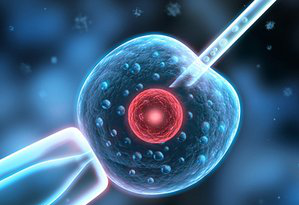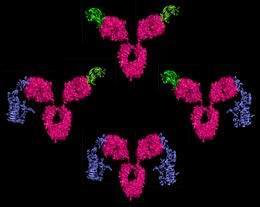Liver cancer and liver cancer antibodies

Liver cancer and liver cancer antibodies
Many patients with liver cancer in China have complicated hepatitis B or hepatitis C. Some scholars believe that the cirrhosis associated with the single liver cancer after surgical resection is the only significant risk factor affecting recurrence and prognosis. Patients with liver cancer often develop because liver cancer is often caused by chronic hepatitis B or hepatitis C. The presence of active hepatitis causes recurrent necrotizing inflammation and regeneration in the liver, accompanied by a large number of mitosis, which causes gene mutations and occurs in multiple centers. The surgical resection rate is relatively low and is also a risk factor for late recurrence.
What is hepatitis?
Hepatitis is a general term for inflammation of the liver. Usually refers to a variety of pathogenic factors - such as viruses, bacteria, parasites, chemical poisons, drugs, alcohol, autoimmune factors, etc., liver cells are destroyed, liver function is impaired, causing a series of body symptoms, and Abnormalities in liver function indicators. Due to the different causes of hepatitis, although there are similar clinical manifestations, there are often significant differences in etiology, serology, injury mechanisms, clinical progression and prognosis, extrahepatic damage, diagnosis and treatment. It should be noted that most of the hepatitis in our lives refers to viral hepatitis caused by hepatitis viruses such as A, B and C.

What is liver cancer?
Liver malignant tumors can be divided into two major categories: primary and secondary. The primary hepatic malignant tumor originates from the epithelial or mesenchymal tissue of the liver. The former is called primary liver cancer. It is a high-risk malignant tumor in China. The latter is called sarcoma and compared with primary liver cancer. Rare. Secondary or metastatic liver cancer refers to a malignant tumor of multiple organs originating in the body that invades the liver. Generally seen in the liver, biliary tract, pancreas, colorectal, ovary, uterus, lung, breast and other organ malignant tumor liver metastasis. The etiology and exact molecular mechanism of primary liver cancer are not fully understood. It is currently considered to be a multi-factor, multi-step complex process that is affected by environmental factors. Epidemiological and experimental research data indicate that hepatitis B virus and hepatitis C virus infection, aflatoxin, drinking water pollution, alcohol, liver cirrhosis, sex hormones, nitrosamines, trace elements, etc. are all related to the incidence of liver cancer. Secondary liver cancer (metastatic liver cancer) can form diseases through different pathways, such as metastasis with blood, lymph, or direct invasion of the liver.
How to compete with liver cancer? ---Anti-hepatoma cell antibody

Antibody: An immunoglobulin produced by a plasma cell differentiated by B cells under the stimulation of an antigenic substance and capable of specifically binding to a corresponding antigen. The antigen stimulates the body to produce antibodies. The antigen may be a protein, but the antibody must be a protein. However, the antibody produced may be considered an "antigen" in another organism. Thus, the antibody produces another antibody in the body. The antibody is called an "anti-antibody".
Immunoglobulins as antibodies are classified into five major classes (IgG, IgA, IgM, IgD, IgE) and each have their own unique antigenicity. Further, in the case of an immunoglobulin, the antigenicity of the IgG antibody against the A antigen and the IgG antibody against the B antigen are also different. That is to say, each of the antigen-stimulated antibodies produced by the organism has its own unique antigenicity, and if the antibody is used to stimulate the body, an anti-idiotype antibody (anti-antibody) can be produced. In serological reactions, anti-antibodies are also commonly used to detect incomplete antibodies.
There are many antibodies related to the liver, such as liver cancer cell antibodies, liver membrane antibodies, andliver screen antibodies. So how about antibodies to liver cancer? For the anti-hepatoma cell antibody, at present, due to the increasing prevalence of liver cancer and the development of science and technology, liver cancer biotherapy has received more and more attention in the treatment of liver cancer, among which liver cancer immunotherapy is The current research focuses on cellular immunotherapy, tumor vaccine, and immunological checkpoint treatment.
At present, the hot research areas of tumor immunotherapy are mainly tumor vaccine, adoptive immune cell therapy, and immune checkpoint blockade therapy. Especially the application of ACT in the field of liver cancer. ACT treatment refers to the collection of autoimmune cells from the peripheral blood of patients with liver cancer. By in vitro culture, cytokine stimulation or tumor antigen loading, the immune cells with anti-tumor activity are amplified in large quantities and returned to the patient. Currently, ACT used in basic and clinical studies includes lymphokine-activated killer cells (LAK cells), tumor infiltrating lymphocytes (TIL), cytokine-induced killer cells (CIK cells), natural killer cells (NK cells), antigens. Specific cytotoxic T lymphocytes (CTL), T cell receptor transgenic T cells (TCR-T cells), chimeric antigen receptor T cells (CAR-T cells), and the like. Immunotherapy raises the subject from the tumor itself to the global level of the immune system. It wants to enhance the anti-tumor immunity of the tumor microenvironment by stimulating the immune function of the body, thereby controlling and killing the tumor cells, and repairing the entire immune system of the human body. At the same time, it is expected to find antibodies against liver cancer cells to save liver cancer patients.